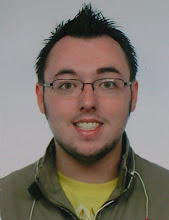In reality, I've done much more than simply slumber. I planned out my Senior year at Northwestern, with the intent to graduate one quarter early -- in other words, almost exactly one year from the present. It's baffling, not frightening, to think that four years of undergraduate education is only a year away from being finished, but then onward and upwards to better things -- likely graduate school, but I don't know quite where as of yet. We'll see. But mostly over the break, I've neglected my research project -- I needed a bit of a break from it to rethink, refocus and reenergize and now I think I'm ready to go.
In terms of my research project, I am using a theory steeped in the principles of live theatrical events (called "liveness") to inform research on the subject of lost or disappeared cinema. As a case study for the project, I am using a film entitled Catch My Soul which was released originally in 1974 and was directed by Patrick McGoohan, star of the BBC show The Prisoner, which may be familiar to some; others, not so much. The film is a rock musical adaptation of William Shakespeare's Othello set at a hippie religious commune in the deserts of Santa Fe, New Mexico -- and, here's the kicker, it's been missing for over thirty years.

The project has two ends, ostensibly -- or perhaps it is better to say two goals. Whichever. The first is to define how a 21st audience, in the digital age, engages (or creates a mirrored engagement) with an absence art object (ie. the film negative or the acetate print. Essentially, I am asking what precisely must be present for an audience or individual to have "seen" the film. This is a process of engaging with the remnants of the films, its memory and memorabilia. The second goal, which need not necessarily be fulfilled, is to find a single remaining print of the film. The emphasis on this second part is tertiary to the first, hence its placement as second.
As Adam Savage, co-host of Mythbusters, said in a recent talk on his own search for rare objects: "achieving the end of the exercise was never the point of the exercise to begin with." And that's the truth of it. I started my research with this philosophy in mind on January 18th, 2009 and, safe to say, was pleased to hear that someone as well-known as Savage was going about things in precisely the same way -- the only difference is that his search is for something rare and mine is for something which everyone tells me no longer exists, which ups the anty.
In late April, I will be traveling to the University of Notre Dame to present a work-in-progress version of my current research on Catch My Soul and I am additionally hoping to be awarded a summer research grant in order to travel and conduct the expensive ends of my research -- and have ample time to do so.
Over the next several months, especially if I am award the grant, I'll be transforming this blog into something of an abridged research journal and also possibly make use of Twitter, should there be an interest among peers and other parties to keep informed on the process of my research. After all, the process of the exercise is the most entertaining part of it all.












